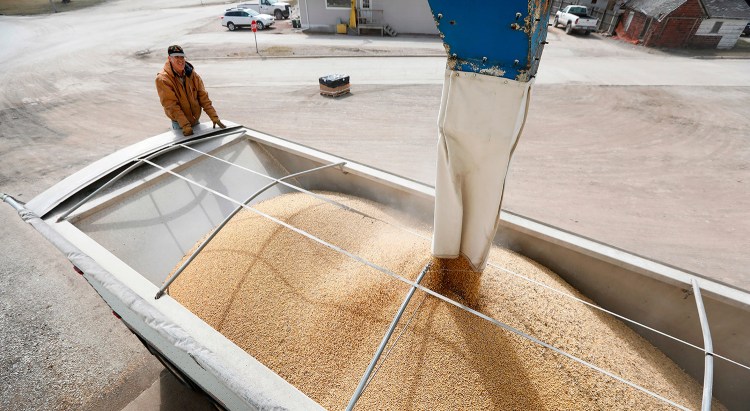A workweek shortened by the July Fourth holiday may seem much longer to Illinois manufacturers and farmers, as products ranging from ketchup to soybeans are hit by tariffs.
On Sunday, Canada began imposing tariffs on about $12.6 billion of U.S. goods. On Thursday, Mexico is expected to increase its tariffs on U.S. pork. And on Friday, the Trump administration is due to impose tariffs on $34 billion of Chinese imports, and the Chinese government has said it will respond in kind.
In 2016, Illinois exports to Canada, Mexico and China, the state’s top three trading partners, totaled more than $30 billion.
The Trump administration earlier this year imposed 20 to 50 percent tariffs on washing machines from China, South Korea and Mexico, and a 30 percent tariff on solar panels from countries that included China.
The administration subsequently imposed tariffs on some products made in the European Union, Mexico and Canada. Among the products affected were steel, aluminum and newsprint.
In return, on Sunday, the EU and Canada slapped the U.S. with 20 to 25 percent levies on domestically produced steel, pork, bourbon, whiskey, jeans, maple syrup, ketchup and orange juice, among other products.
Two Chicago companies, distiller Beam Suntory and food manufacturer Kraft Heinz, had little to say Monday about the global trade dispute and whether it will result in higher prices or cost-cutting.
“Bourbon is a great American export success story, and rising demand for our brands in Europe is helping drive global growth,” said Beam Suntory spokeswoman Emily York in an email. “We continue to urge the EU and the U.S. to work towards a solution that reverses the retaliatory tariffs.”
Heinz ketchup is one of the most ubiquitous products to be the subject of a tariff.
“As a global food company, Kraft Heinz opposes trade policies that impose taxes or tariffs on our products,” spokesman Michael Mullen said in an emailed statement. “We are opposed to any change that impacts our ability to seamlessly move our products across these borders.”
The pending 25 percent tariff on some products exported from the U.S. to China would widen the American industries affected by trade battles.
“Products related to machinery, medical devices, various widgets … anyone facing a 25 percent tariff will see significant price increases,” said Erin Ennis, senior vice president at the U.S. China Business Council.
Possibly most devastating to Illinois is the looming tariff on soybean exports that could go into effect Friday.
Soybean farmers – whose crop can be found in everyday products ranging from tofu and soy sauce to cosmetics, farm feed and biofuel – are likely to be on the receiving end of a huge hit. Soybeans are the largest agricultural export in the U.S. and the second largest agricultural export in Illinois.
One in every three rows of soybeans grown in the U.S. gets exported to China, which yielded $21 billion in sales last year. For Illinois, the largest producer of soybeans in the U.S. with $3 billion in exports, the impact of the proposed tariff is expected to be intense.
Soybean prices have plunged as a result, according to Kevin McNew, chief economist at the Farmer’s Business Network.
Consequently, soybean farmers have taken the issue into their own hands, as they’ve descended upon social media with the hashtags #TradeNotTariffs and #RethinkTariffs.
Next week, roughly 100 soybean growers will visit Washington, D.C., to help lawmakers understand the impact, according to the American Soybean Association.
“There is still time for this to be averted,” said Wendy Brannen, spokeswoman for the trade group. “Our hope is the two governments use between now and Friday to come back to the table … even if they just begin a discussion.”
Send questions/comments to the editors.



Comments are no longer available on this story